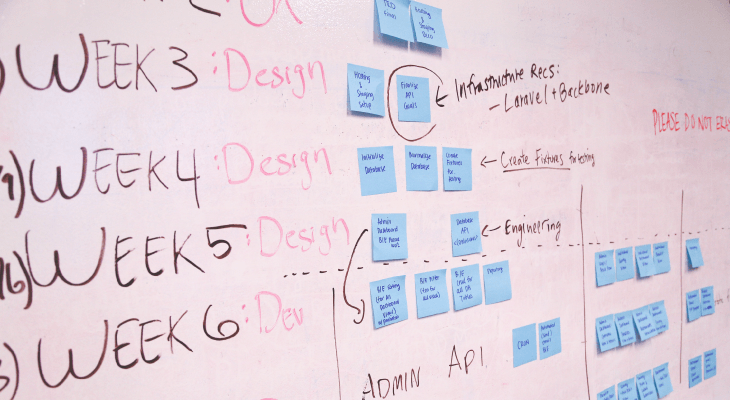Why Do We Love to Procrastinate?
Can’t seem to get yourself to focus on a task for more than 10 minutes? Find out why and learn how you can combat procrastination!
Updated 05 Mar 2019

Procrastination — “to keep delaying something that must be done, often because it is unpleasant or boring”.
Whether you’ve been putting off cleaning your room or waiting till the night before the due date to read the assignment question, we’ve all been guilty of procrastinating many times in our lives.
But why do we continue to partake in this nasty habit despite being well aware of its negative consequences? In this article, we’re getting to the bottom of why we love to procrastinate and how to combat it.
Why we procrastinate
Are we just lazy or is there a science behind our persistent need to put off till tomorrow what we can do today? Here are some explanations for why we procrastinate.
#1. We were born this way

Lady Gaga wasn’t kidding. It looks like our tendency to procrastinate can be attributed to our biological makeup.
Science shows that the part of our brain that’s responsible for getting work done (the prefrontal cortex) only kicks into gear once you’re consciously engaged in a task. If that doesn’t happen, the system that’s responsible for emotions like pleasure (the limbic system) takes over and encourages you to do something fun instead.
What this means is that when faced with that boring difficult Accounts tutorial, unless your prefrontal cortex is locked, loaded and ready to go (read: you’re 100% focused) it’s likely that your attention will start to wane and you’ll naturally drift towards doing something else instead.
#2. It’s our fall guy in case we fail

Our penchant for procrastination could also stem from a phenomenon psychologists refer to as self-handicapping — where we sabotage ourselves by waiting until the last minute to do something, so that if we fail, we can attribute it to a lack of effort rather than a lack of ability.
This means that although we’re well aware of that important test we’ll be facing in two weeks, we subconsciously put off studying till the night before so that if we don’t do well, it won’t be because we tried and couldn’t do it but because we just didn’t put in enough effort.
Let’s be honest, chalking up the failure to a lack of time sounds much better (and a lot less humiliating) than having to admit we’re just not made to do Further Mathematics.
#3. We’re just not motivated

According to Dr. Piers Steel, a psychologist and professor of procrastination, our tendency to procrastinate can be explained through a simple equation he coined the procrastination equation:

- Expectancy refers to our expectations for being able to complete the task
- Value is how interesting the task is
- Impulsiveness is how likely we are to be distracted
- Delay refers to the amount of time it takes before we receive the reward for completing the task
The more difficult the work is, the less we expect to complete it and the less motivated we are to do it. This is also the case when the task is tedious and unexciting. We are also more likely to procrastinate when we give in to impulses to check WhatsApp messages and other critical pursuits. Finally, the longer the delay, the more likely we are to put off tasks till later as we tend to prioritise things that give us pleasure in the short term over things that will help us in the long run.
How to curb procrastination
Now that you know the reasons you procrastinate, how can you kick this dreadful habit? Here are some strategies to curb procrastination once and for all.

#1. Do the toughest thing first

This probably isn’t something you want to hear, but one of the best ways to combat procrastination is to buckle down and get the most challenging tasks out of the way first. In fact, research has shown that most of us actually prefer to ‘pre-crastinate’ — hurrying to complete a task as soon as possible, as it eliminates the mental burden of having to complete a difficult assignment later in the day.
So the next time you’ve got a bunch of seriously lame things on your to-do list, it’s best to get started on the toughest one as it would take more time. This means working on that 25-page Company Law assignment first so it doesn’t weigh on your mind and ruin your entire weekend. Trust us — you’ll thank yourself later!
#2. Do a midday reboot

If you’ve whiled away a potentially productive morning by doing absolutely nothing (it happens to the best of us), give yourself a second start in the day. Instead of lamenting on how you let a perfectly good day go to waste, pull out that lengthy checklist at 2pm and start crossing things off.
Even if you’ve let your whole morning sneak up and fly right past you, you don’t have to watch your afternoon suffer the same fate. As they say, it’s never too late to start!
Apply for university with EduAdvisor
Secure scholarships and more when you apply to any of our 100+ partner universities.
Start now#3. Pair up with a buddy

Another way to make sure you get the deed done is to set up a buddy system. Fix internal deadlines for your assignment group members to follow, engage a no-nonsense workout partner to ensure you show up for that gym session you’ve been putting off all week or sync to-do lists with a reliable mate to keep each other in check.
You may not be motivated to finish that seemingly impossible chore when you’re the only one who’s counting on you, but there’s a lot more at stake when you’re accountable to a friend or team to get the job done.
#4. Divide and conquer to boost expectancy

If you’ve got a monster project to tackle, break down big chunks of work into bite-sized tasks as it’s easier to complete smaller tasks. This way, you’ll be more motivated to cross it off your list.
For example, instead of scheduling 3 hours to “study Statistics”, break down your study session into specific subtopics and reward yourself each time you complete these mini-tasks. You might end up with a much longer to-do list but you'll savour the satisfaction of ticking things off as you get to the end of your list much quicker.

#5. Spice up your work sesh to increase value

Turn that mundane task into something you look forward to by inventing weird and wacky ways to study, getting your work done with a trusty group of friends or even trekking to a cosy workspace to write that research paper.
If there’s no way of turning that gross Organisational Behaviour tutorial into a fun activity, upgrade the rewards for completing it.
Instead of taking frequent breaks to watch a YouTube video or refreshing your Twitter feed every 20 minutes, treat yourself to some high-density fun once you’ve completed your tough task without any distractions. It could be going out for dinner and a movie with your mates at the end of the day or kicking back to watch a Netflix movie you’ve been dying to catch. This creates anticipation, which can be channelled into energy so that you buckle down and focus on your work.
#6. Resist the impulses

While it might seem like an immense effort not to peek at your phone every few minutes, the more you resist the urge to click on that Instagram notification while you’re working, the less likely you are to procrastinate.
In order to help your brain engage its ‘beast mode’, start by establishing a designated study spot and removing all possible distractions. Set a timer for 25 minutes and train yourself not to budge until you’ve utilised those precious few minutes to finish whatever it is you’ve set out to do.
We hope this article gives you some insight into why you procrastinate and how to combat this damaging habit. It might seem as if nature has set us up for procrastination, but that doesn’t mean we should allow our minds to get the better of us. With enough determination and practice, you’ll be a lean, mean productivity machine in no time!






